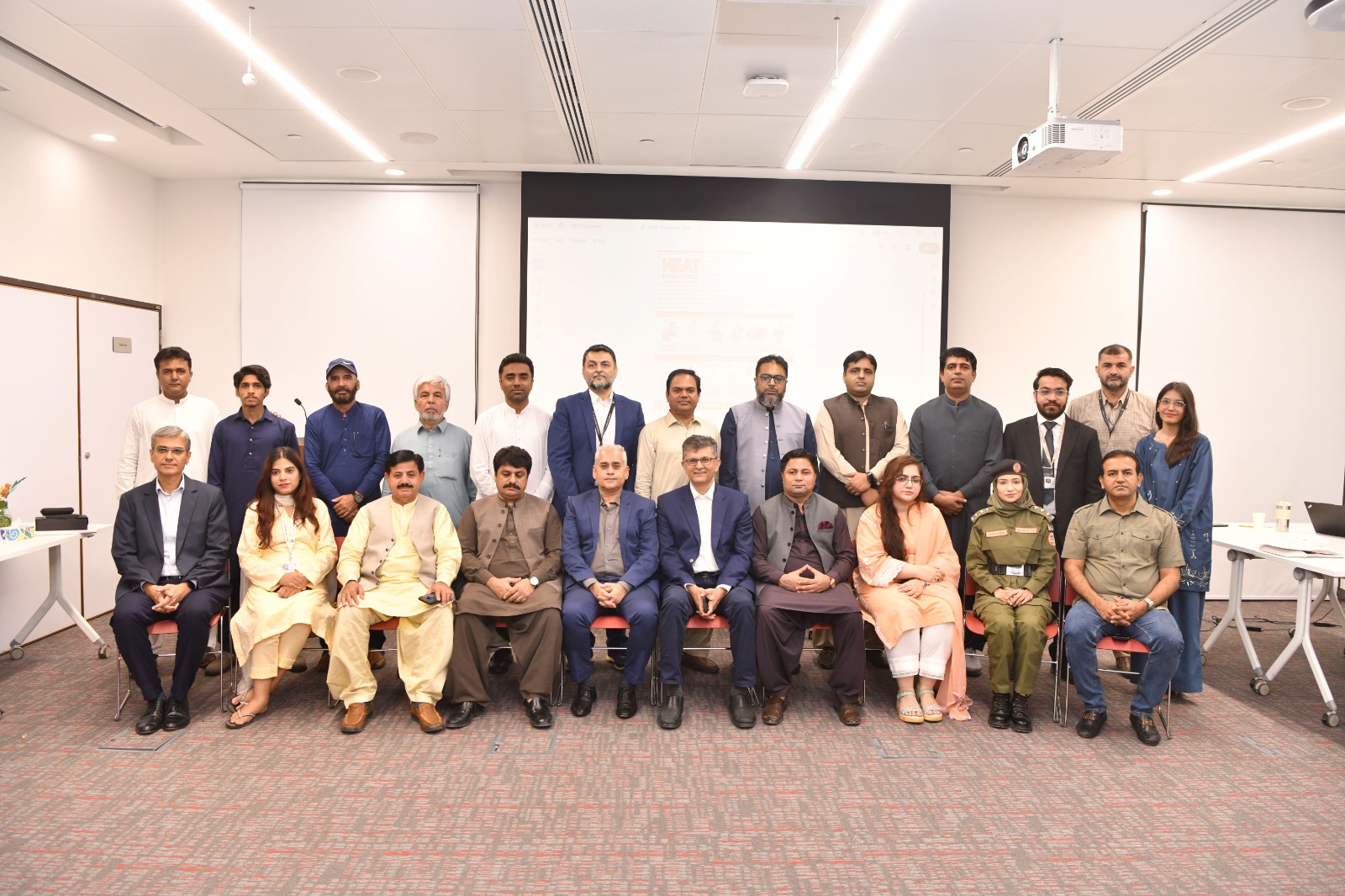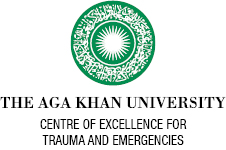Heat Emergency Awareness and Treatment (HEAT)
Between 2017 and 2019, a randomized control trial involving 16,000 individuals from Karachi was conducted to investigate Heat Emergency Awareness and Treatment (HEAT). Building on its findings, the Centre of Excellence for Trauma and Emergencies (CETE) secured additional funding from Elrha—Enhancing Learning and Research for Humanitarian Assistance—to expand this work to the district level.
The project, sponsored and supported by Elrha, comprises three primary components:
1: Consultative Meeting (2024)
On August 2, 2024, CETE in collaboration with the Provincial Disaster Management Authority (PDMA), organized a consultative stakeholder meeting to understand severe heat events in Pakistan, raise awareness about heat exposure and treatment, and develop a comprehensive Heat Plan to address climate change.
The meeting brought together key officials, including Assistant Commissioners, Additional Deputy Commissioners, and District Health Officers from Sindh, as well as Dr. Sardar Sarfaraz, Chief Meteorologist of the Pakistan Meteorological Department; Imdad Hussain Siddiqui, Director of Operations at PDMA; and representatives from Rescue 1122 and Sindh Integrated Emergency and Health Services.
A consensus was reached on the need for a more effective and institutionalized District Disaster Management Authority (DDMA), enhanced coordination on heatwave management across districts, and a stronger focus on an effective communication campaign between government departments and non-profit organizations. All stakeholders agreed to hold regular meetings and supported the development of a Heatwave Management Plan for adversely affected districts.
Read more about the consultative meeting here.
%20(1).JPG)
.JPG)
.JPG)
2: City HEAT Action Plan(s) Showcase (2025)
Following the 2024 consultative meeting, CETE and PDMA Sindh worked over the past year with local administrations in five of Sindh’s most heat-prone cities—Hyderabad, Dadu, Larkano, Mirpurkhas, and Naushero Feroze—to develop tailored City Heat Action Plans. On Friday, June 20, 2025, these cities presented their plans at a milestone City HEAT Action Plan Showcase Conference held at Aga Khan University.
District officials came together and shared locally developed strategies to combat extreme heat and protect vulnerable populations. The plans include measures such as establishing heat stroke wards and camps, deploying mobile water sprinklers, conducting school-based awareness drives, activating early warning systems, and setting up community-led cooling points. This locally led, resource-aware approach represents a significant step toward building climate resilience where it is needed most.
Read more about the City HEAT Action Plan showcase here.

.JPG)
.JPG)
3: Informational Video
We've developed a concise 3-5 minute video to raise awareness about heat-related illnesses, targeting urban adults in Pakistan. Tested on 16,000 individuals in Karachi, the video aims to increase preparedness and promote proactive measures. It will be featured at the Mayor's Conference to discuss tailored dissemination strategies via YouTube, social media, and WhatsApp. Watch below to help spread the message and save lives.


